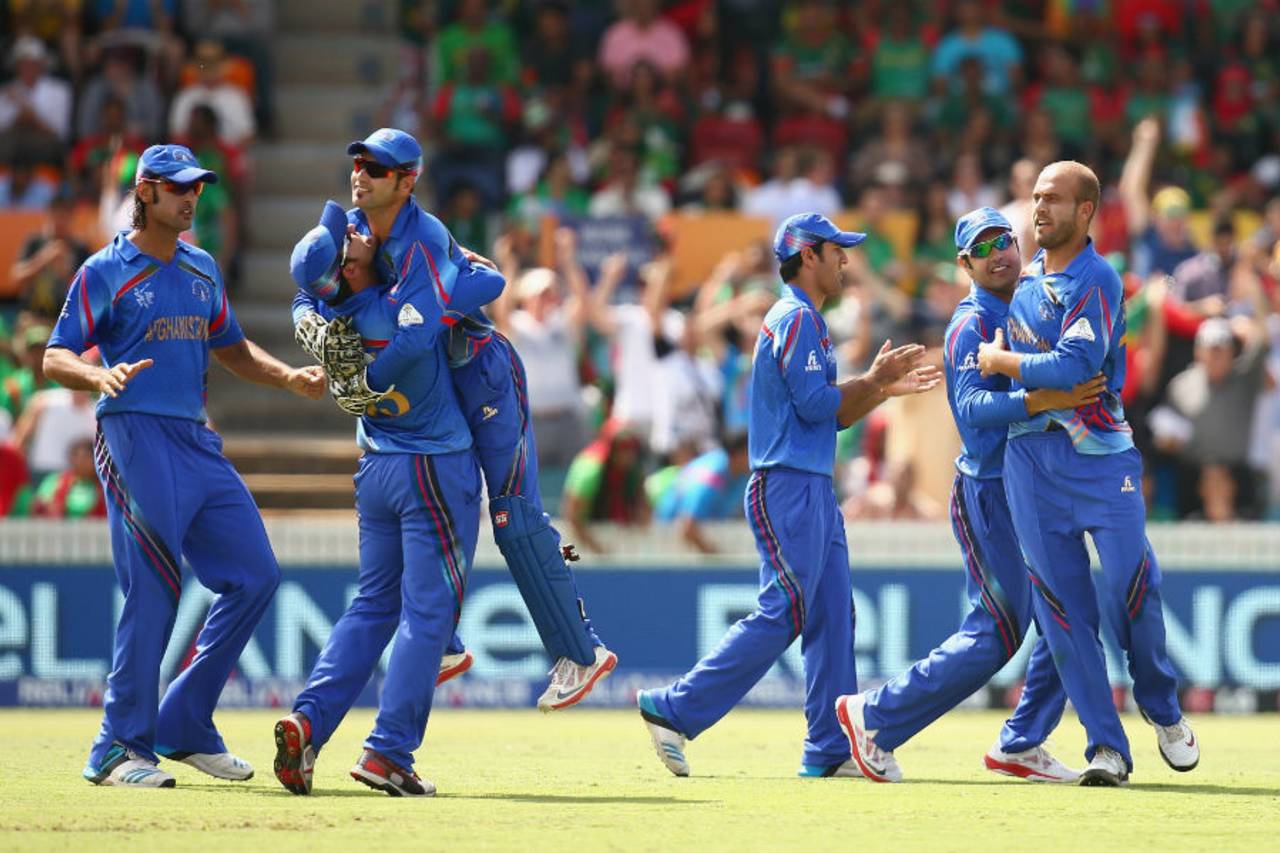What next for the Associates?
Cricket can be expanded further by giving the Associates enough opportunities to prove themselves
Jacob Astill
19-Feb-2015

The Associates must be given enough opportunities to prove themselves • Getty Images
Nothing makes me more disconsolate than a missed opportunity. I am sure that many readers will share my sentiment. In the 2003 World Cup, a spirited Kenyan team beat Test nations - Sri Lanka, Zimbabwe, and Bangladesh, before their incredible run was ended by India in the semi-finals. Kenya, though, deserve credit for giving India a run for their money in the Super Sixes.
This gave beef to the argument that Kenya, with talented players like Collins Obuya, Kennedy Otieno, Thomas Odoyo, and Maurice Odumbe, could have made to Test cricket. That Kenya are the only Associate side to make the semi-finals in a World Cup is an achievement in itself. Captain Steve Tikolo, however, joined the list of of Clive Rice, Garth Le Roux, and Jamie Siddons among others, as some of the most talented players to have not played Tests. The two South Africans missed out due to the Apartheid regime, while Siddons was unlucky to be part of an exceptionally strong Australian era. Tikolo, Kenya's greatest ever player, also missed out.
Unfortunately, Kenya did not even qualify for the 2015 World Cup. Kenyan cricket is in disarray now and an argument could be made for negligence on behalf of the ICC.
Ireland had toppled West Indies on Monday after defeating England in the 2011 World Cup in India. I believe we can also expect some decent performances from Afghanistan too.
However, all this follows the dampening announcement of the 2019 World Cup being pruned to 10 teams. This means that there will be very little space the Associates - the top eight teams getting direct entry, while the other two places will be decided by a qualification tournament in Bangladesh. The Associates are already starved of enough opportunities in international cricket and their situation is likely to worsen, with the "redirection" of international cricket funds into the deepening pockets of the Big Three.
So, do the Associates deserve less opportunities than Full Members? The answer is: they don't. Cricket can be a game ripe for expansion, with an international fan base to rival other international sports like rugby and basketball. However, the nations who can contribute to the expansion are not being given opportunities. Had Sri Lanka been starved of opportunities to play international cricket after improved performances in the 1980s, the 1996 World Cup would have ended differently. Would India's title win in 1983 have been as ground-breaking without the chances they were given in the decade before? Unlikely. Think of the players we would have lost if cricket had been restricted to only Australia and England. Big names like Sachin Tendulkar, Kumar Sangakkara, Sir Garfield Sobers,Sir Viv Richards, Barry Richards and Wasim Akram strike my mind.
The reason cricket is cricket today is due to the development of Associates. This can be propped up further through more ODI or T20 cricket and appropriate funding to improve infrastructure at the grassroots. However, one thing is certain: the status quo of international cricket will never remain the same, it will either expand or decline. The latter looms large if things continue as they are. The World Cup is a bright chance for the Associates to test themselves against the best. You never know, they might surprise us.
If you have a submission for Inbox, send it to us here, with "Inbox" in the subject line.